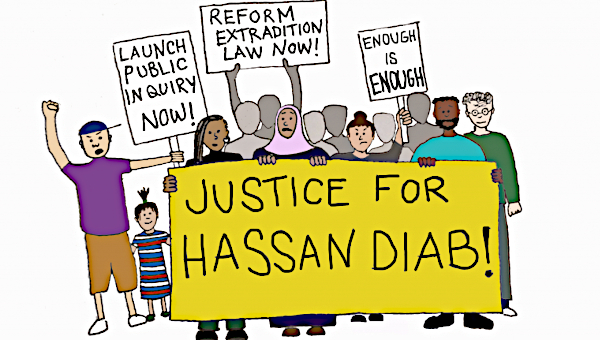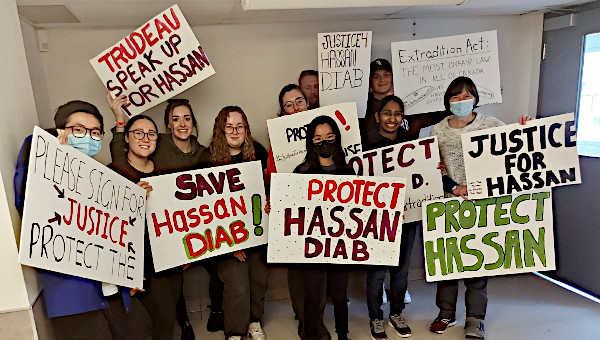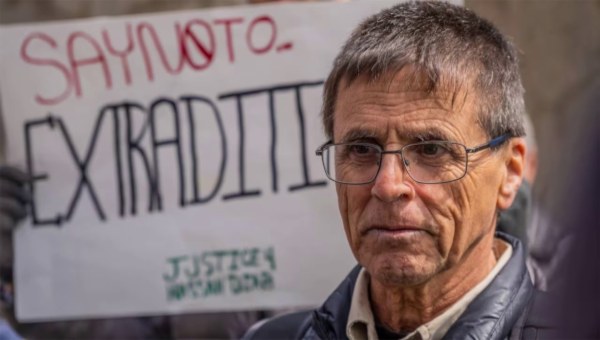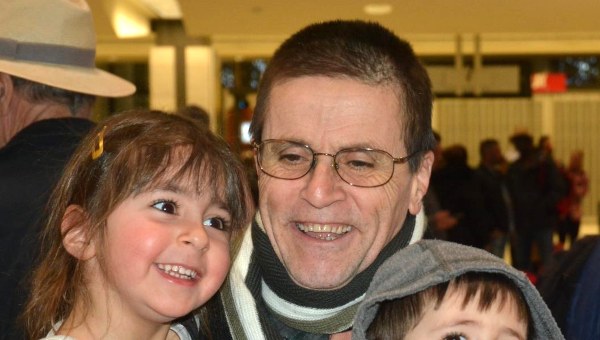The 15-Year Ordeal of Hassan Diab
It was November 13th, 2008, a Saturday, when the banging on the front door began, Dr. Diab opened the door and was faced by a band of men armed to the teeth, all screaming and yelling at him, and, worst of all, threatening him with their sub-machine guns. The RCMP Swat Team, for that is who they were, had come to arrest Dr. Diab and to ensure his extradition to France. They had been told that he was a dangerous terrorist who had blown up a Paris synagogue back in1980. In fact, he was, and is, not a terrorist at all, but rather a most peaceful family man and the nicest person anyone could hope to meet.
From his house, he was taken to the RCMP headquarters in the Eastern part of Ottawa. Later, he was transferred to the Ottawa-Carleton Detention Centre. He has described the latter as by far the most horrible prison, much worse than the maximum-security prison in France, in which he later spent more than three years, in solitary confinement the entire day, except for two hours a day when he was permitted to walk in the company of the other inmates.
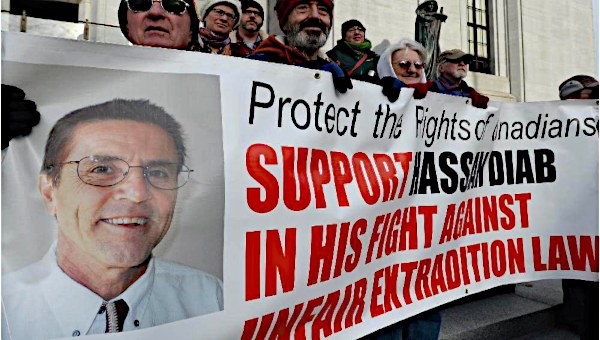
In Prison
Dr. Diab was not allowed to bring any food or clothing (such as a coat) with him to the Ottawa prison, despite it being early winter then. When he was taken to the court, where his attorney, the remarkable Donald Bayne, was trying to prevent him from being extradited to France, he suffered bitterly from the cold and had nothing to eat or drink for many hours.
In 2014, after many years of legal battles, he was extradited to France, where he spent thirty-eight months in prison, until 2018, when the investigative magistrates found that the case against him did not hold water, then dropped the charges, and released him.
In 2021, the Appeals Court in France reversed that decision and called for a criminal trial of Dr. Diab. The trial took place in April 2023, in his absence, at the ‘specially appointed anti-terrorist court. After three weeks of hearing from a bizarre gallery of witnesses (including journalists who had written about the case and individuals who had known Dr. Diab many years after the crime of which he was accused and only for a brief time), the court declared Dr. Diab guilty of murder and attempted murder of people attending the synagogue, as well as of passersby.
What about the ‘evidence’ that underpinned the verdict? The faded photocopy of an old passport, which Dr. Diab had lost in Beirut some forty years ago after a vacation in Greece. The Court heard that the original passport had been found in 1981 on the person of the nephew of the leader of a terrorist group based in South Lebanon. Allegedly, this nephew was carrying several passports, under different names, when he was arrested by the Italian police at the Rome Airport. The French say that this nephew was released by the Italians two weeks later and left with all of the documents. Why was he allowed to leave with the evidence, even though he was attempting to enter Italy under false pretenses? The story does not say.
In any case, in a fit of twisted logic, the Court in Paris concluded that the alleged discovery by the Italian police of Dr. Diab’s passport in the personal effects of the nephew of a terrorist organization’s leader proved that Dr. Diab was a member of that organization. There were visa stamps on the photocopy of the passport. Even though it was obvious that these stamps could have been added to the photocopy after the passport had been lost, the Court accepted the Spanish and French visa stamps on the photocopy as proof that Dr. Diab had travelled to Paris from Spain in 1980, when the bombing occurred.
The source of this tale of the discovery of the passport on the person of this nephew has not been disclosed. Because the ‘nephew’ has disappeared, there is no way to confirm the story or find out more. And who knows who the Italian border guards were or whether they could be found today? Courts in Canada are not supposed to accept ‘intelligence reports’ uncorroborated by witnesses or by material proof as evidence in a trial. In France, the courts apparently do accept such things.
Paris Courts
The court in Paris also concluded that police sketches and old photographs proved that Dr. Diab was the man who rented a room in a Paris hotel under the name Alexander Panadriyu (who had long been suspected of being the perpetrator of the synagogue bombing). The Court completely ignored the fact that Dr. Diab’s fingerprints had been compared to Panadriyu’s by the RCMP and the French police – and they did not match!
Finally, the Court ignored evidence of Dr. Diab’s alibi contained in its own files: a letter from the Lebanese University in Beirut at which Dr. Diab studied, a letter that confirmed the dates of the university exams – as well as Dr. Diab’s claim that he was in Beirut at the time the synagogue was bombed in Paris.
Because Dr. Diab was not present at the trial, he has had no right to appeal the verdict. Six months after the French court’s decision, Dr. Diab does not know whether France has requested his second extradition, whether the SWAT team will be banging on his door again, or how his life (and that of his family) will unfold. The federal government does not answer telephone calls or letters concerning him. •


